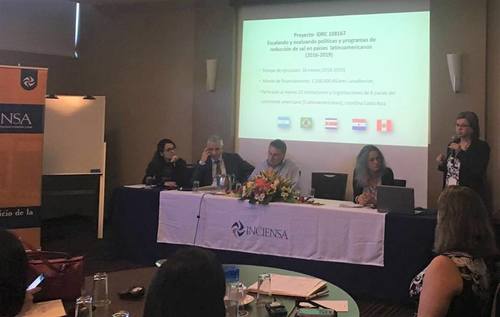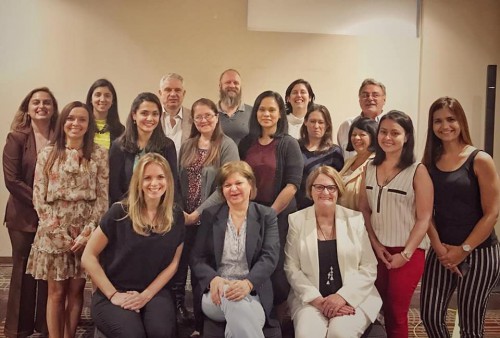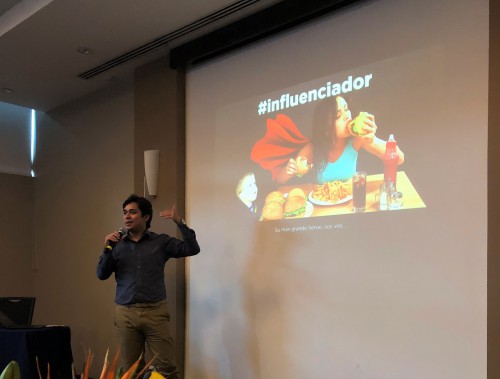Dr. Mahmooda Khaliq Pasha aims to reduce salt consumption in Latin America
World Salt Awareness Week is March 4-10
It is well-established that too much salt can have negative health effects, including high blood pressure and kidney problems. However, the average American consumes 1.5 times the recommended amount of sodium each day.
“Too much dietary salt is a major cause of high blood pressure, which is a leading risk for disability worldwide,” said Mahmooda Khaliq Pasha, PhD, MHS, CPH, assistant professor of social marketing and community and family health and at the USF College of Public Health.
The international public health community has shown great concern regarding this problem and efforts to reduce sodium consumption through policy change, health education and promotion and community-led interventions have been increasing in number and scope, according to Pasha.
The WHO Collaborating Center on Social Marketing and Social Change (WHO CC) at USF, led by Pasha, has been engaged with public health professionals in Central and South America to build their capacity to apply social marketing to the public health issue of reducing salt intake.
Pasha is the principal investigator for the International Development Research Centre (IDRC) funded project evaluating the use of social marketing to reduce salt intake in four countries–Brazil, Peru, Costa Rica and Paraguay.

The IDRC project is conducted in partnership with the Costa Rican Institute of Research and Teaching in Health and Nutrition (INCIENSA) and Pan American Health Organization (PAHO).
Pasha and her colleagues have been providing training and technical assistance in social marketing to core research teams in these four countries, consisting of representatives from the ministries of health, as well as those from the nonprofit sector and academic institutions.
The teams met in San Jose, Costa Rica in February to take the next steps in their research efforts.
“We brainstormed an evidence-based strategy to tackle the problem of sodium consumption both at a regional and country level,” Pasha said. “In this second workshop, we took the time to synthesize the research findings from the four countries and start the process of developing a region-wide strategy on the reduction of salt within the household.”

Pasha and her team, including COPH doctoral student and WHO CC team member Silvia Sommariva, guided researchers from the participating countries in translating their findings on why individuals, particularly mothers and fathers, are resistant to reducing sodium consumption and which values and benefits could be leveraged to promote behavior change.
Creative professionals from each country were also invited to participate in the workshop and transform those insights into actionable creative strategies and communication materials.

“It was inspiring seeing how research findings from the different country reports could be transformed into action to reduce salt consumption in Central and Latin America.” Sommariva said. “The public health professionals that received training in social marketing were very motivated to use this approach to tackle an issue they have been dedicating their professional life to. We hope this is just the beginning for them and that they will be able to pilot the communication materials in their countries soon. It goes to show the importance of integrating research and practice in public health.”
Pasha and her team will review and finalize the materials created during the workshop. By May of this year, USF will present a regional communication plan that includes rolling out the umbrella creative concepts into multiple channels. This plan will be adapted and implemented by partners in Central and South America.
Related media:
Reducir el consumo de sal, uno de los principales retos en las Américas
(Reducing salt consumption, one of the main challenges in the Americas)
Story by Silvia Sommariva and Anna Mayor, USF College of Public Health
